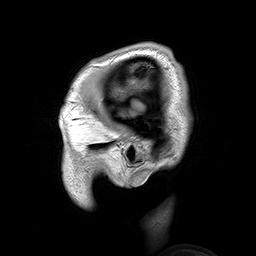Hello reader, I hope you specifically are having a good day, this is part 2 of our meditation series. Last week we discussed whether the meditation retreat I went to was a cult. This week I'm going to talk about the science of meditation retreats and meditation.
As our lives have become increasingly noisy, it's no wonder that millions flock to meditation retreats every year, eager for a taste of silence.
At the forefront of understanding how meditation affects the brain is Dr Zoran Josipovic, a neuroscientist who has scanned the brains of experienced Tibetan Buddhist monks to study the effects of deep meditation. His research focuses on the brain's "default network", a system that controls self-reflective thought. For years, scientists believed that this network only became active when the brain was idle or lost in daydreams. However, Josipovic's studies show that experienced meditators can activate both the default network and the extrinsic network, which is responsible for focusing on external tasks, at the same time. In lay people's brains these networks alternate like a seesaw, but in monks' brains the seesaw is balanced, doing both at the same time, active in external activities while present in internal experiences. Perfectly balanced...
This could explain the profound sense of 'oneness' experienced by many meditators, where the boundary between self and environment dissolves, creating a state of harmony.
The ability to balance these networks is associated with increased focus and harmony. However, the neural benefits of meditation aren't universally experienced - at least not immediately.
The Dark Side of Retreats
While researching meditation retreats, I came across an investigative podcast series, Untold: The Retreat, which explores the dark side of intensive meditation retreats, particularly those in the Goenka tradition of Vipassana meditation. These retreats are similar to the one I went on. Participants meditate for up to 10 hours a day in silence, with two vegan meals a day and no communication with others. While most report transformative, life-changing experiences, a growing number of participants experience severe psychological distress during or after their retreats. Some develop symptoms of psychosis, hallucinations and extreme anxiety, and some have even taken their own lives after attending. One former participant described the meditation leaders' reaction to her distress: "They'll tell you the same thing, which is to keep meditating even if you're in severe emotional distress.
This is a real risk, and it was not limited to those with previous mental health problems, but included people who went in mentally healthy and came out broken. A rare side effect, but possible. Meditation is a deep journey into oneself, and it is quite possible to get lost in dark woods along the way. 3 million people have participated in these retreats, the vast majority reporting positive experiences, but the issues here are still good to be aware of.
A bigger picture:
What does the science say when you zoom out? One paper looked at the effects of a meditation retreat on about 100 participants, and the effects were positive and long-lasting.
“Relative to pre-retreat (time 2), at post-retreat (time 3), participants displayed significantly improved mindfulness overall and on the observe, acting with awareness, nonreactivity, and nonjudgment subscales, as well as improvements in emotional awareness and perceived control, and reductions in dysfunctional attitudes and symptoms of anxiety and depression”
Overall, meditation retreats increased focus, mindfulness and non-reactivity, while reducing anxiety and depression. Sounds like a pretty good deal if you ask me. To tie this back to the negative stories, 3 million people have been on these retreats and the vast majority report positive experiences - this seems to be borne out in the data with a significant improvement in wellbeing indicators. However, this overall improvement could still include people who come into crisis through meditation. Really, I wouldn't worry, there are so many more negative things than meditation, but the warning is just something to be aware of. Go into a meditation retreat in a relatively stable state of mind and if things go badly wrong, seek help outside of the retreat if necessary.
All in all, meditation boasts one of the strongest track records for improving mental health. However, we're still uncovering how it impacts the brain at a deeper level. Meditation retreats can be a powerful tool for those looking to deepen their practice and take the next step on their journey.
Recommendations this week
Articles
Being surrounded by convenience may have weakened us to the point where younger generations find smaller and smaller tasks overwhelming. How much of our navigation ability have we lost through google maps for example.
Some ideas on how to curate a more positive social media feed:
https://edition.cnn.com/2024/11/06/health/social-media-healthy-intentional-wellness/index.html
If you need a laugh:
Impractical Jokers is one of the funniest shows out there, I seriously end up watching the same clips over and over, but they are still hilarious.
Music:
Legit magic. Listen now, I promise it is worth it.
Better vibes exercise:
Listen to the song that reminds you to enjoy life.
Sources:
https://link.springer.com/article/10.1007/s12671-017-0682-5#MOESM1
http://www.globaldialoguefoundation.org/files/BES.SCI.2011-apr.brainsofbuddhistmonks.pdf







